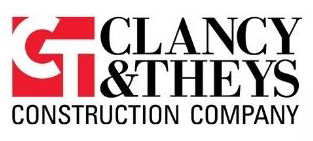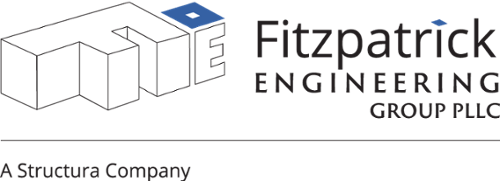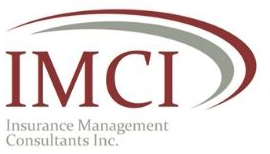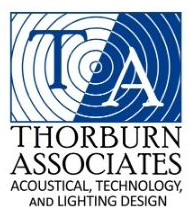ARTICLE 1
ORGANIZATION
1.0 GENERAL PROVISIONS
1.01 Name. The name of this organization is AIA Charlotte, A Section of The North Carolina Chapter, The American Institute of Architects, hereafter referred to as this Section, except for reports to government and other instances requiring official identification, the commonly used name for the Section shall be AIA Charlotte.
1.011 Related Institute Organizations. In these bylaws the governing board of this Section is referred to as the Board of Directors, The North Carolina Chapter of The American Institute of Architects is referred to as AIA North Carolina, the Board of Directors of AIA North Carolina is referred to as the AIA North Carolina Board The American Institute of Architects is referred to as the Institute, and the Board of Directors of the Institute as the AIA Board.
1.02 Objects. The objects of this Section shall be to promote and forward the objects of The American Institute of Architects within the assigned territory of this Section. (The Institute objects are: to organize and unite in fellowship the members of the architectural profession; to promote the aesthetic, scientific and practical efficiency of the profession; to advance the science and art of planning and building by advancing the standards of architectural education, training and practice; to coordinate the building industry and the profession of architecture to insure the advancement of the living standards of people through their improved environment; and to make the profession of ever-increasing service to society.) (AIA Bylaws Section 1.02 and 4.03)
1.03 Domain. The domain of this Section shall be that territory described in its charter or otherwise established by the Institute. The territory of this Section is 12 counties in the State of North Carolina Charlotte Region, consisting of Cleveland, Catawba, Iredell, Lincoln, Gaston, Mecklenburg, Rowan, Cabarrus, Union, Stanley, Ansen, and Montgomery Counties.
1.04 Organization. This Section is a non-profit membership corporation incorporated in the State of North Carolina on the 4th day of March, 2003, by virtue of the provisions of G.S. 55 et. seq., and chartered by the Institute in November, 1962.
1.05 Authority. This Section shall represent and act for the Institute membership within the territory assigned to it on local matters under a charter issued by the AIA Board. (AIA Bylaws Section 4.051) The Institute and this Section may act as agent, one for the other, or through a delegated third party, for the purpose of collecting and forwarding dues, acting as custodian of funds, or otherwise; provided that the Institute and this Section execute a written agreement to that effect.
1.06 Conformity with Institute Policy. No act of this Section shall directly or indirectly nullify or contravene any act or policy of the Institute. This Section shall cooperate with AIA North Carolina and the AIA South Atlantic Region to further the interests of the membership, and by agreement with these organizations may represent and act for them within the territory of this Section.
1.1 AFFILIATIONS WITH OTHER ORGANIZATIONS
1.11 Purpose of Affiliations. This Section may affiliate with any local organization of the construction industry operating within the territory of this Section that is not used or maintained for financial gain, price fixing or political purposes, if and while the objects of this Section will be promoted by such affiliation.
1.12 Agreements of Affiliation. Every affiliation must be authorized by not less than two-thirds vote of the Board of Directors and shall be evidenced by a written agreement signed by the Section and the affiliated organization.
1.121 Statement of Purpose. Every agreement of affiliation shall state the purposes and objects of the affiliation, the terms and conditions under which it is entered into, the duration, the objects of the affiliate and the nature of its organizations, membership, government and operations.
1.122 Limitations. No affiliated organization shall have any voice in the affairs of this Section and shall not bind or obligate this Section to any policy or activity unless the Board of Directors has voted to be so bound or obligated.
1.123 Termination. Any affiliation may be terminated by majority vote of the Board of Directors upon such notice to the affiliated organization as may be required in the agreement of affiliation.
1.13 Privileges of Affiliated Organizations. The representatives of an affiliated or collaborating organization may attend any of the regular meetings of this Section, and may speak at the invitation of the presiding officer.
1.2 ENDORSEMENTS
Neither this Section, nor the Board of Directors, any Section committee, nor any of its officers, directors, committee members or employees in an official capacity as such, shall approve, sponsor or endorse, either directly or indirectly, any public or private enterprise operated for profit, or any material of construction or any method or manner of handling, using, distributing or dealing in any material or product.
ARTICLE 2
MEMBERSHIP
2.0 GENERAL PROVISIONS
2.01 Categories of Membership. The membership of this Section shall consist of:
a) the Architect and Associate members of the Institute who have been assigned to the Section, or who have been admitted to unassigned membership in this Section, and
b) the allied and honorary affiliate members the Section may admit as provided in Paragraphs 2.35 through 2.37.
2.02 Definitions. In these bylaws, Architect and Associate members who have been assigned to this Section by the Institute are referred to as "assigned members." The term "unassigned member" shall refer to members assigned to other Sections who have been admitted to membership in this Section pursuant to section 2.2 of these bylaws. The term "allied" shall refer to allied members and the term "honorary affiliate" shall refer to honorary affiliate members. The term "member", if not otherwise qualified, shall refer to all persons in all classes of membership in this Section.
2.03 Qualifications. This Section shall not establish qualifications in addition to, or which vary from, the Institute's policies for membership.
2.04 Non-resident Status. This Section will provide for nonresident status for members who choose to be assigned to the Section even though they do not reside or have their principal place of business in the Section and do not reside or work in the territory of another Section. Assigned members with non-resident status have the same rights and privileges as those with resident status, except that the Section may lower dues and/or assessments for such members as provided in Article 3.
2.05 Enrollment of Members. Every member assigned to or admitted by this Section shall be duly notified to that effect by this Section, and shall be enrolled by the Executive Director as a member of this Section. New memberships will be announced at the next regular meeting of this Section and in the next issue of the Section's official publication. (AIA Bylaws Section 4.15)
2.06 Annual Dues and Assessments. Every member of this Section shall pay the fixed annual dues and assessments of this Section as determined in Article 3.
2.07 Resignations. Any member may resign from this Section by presenting a written resignation to the Executive Director. The resignation of an assigned member, if the Secretary finds the member eligible to resign, shall be forwarded to the Institute and will be effective upon its receipt by the Institute. Other resignations shall be effective as of the date the letter of resignation was received by the Executive Director. (AIA Bylaws Section 2.081 and 2.084)
2.08 Good Standing Defined. A member is not in good standing in this Section if and while in default of dues or other obligations to either this Section or the Institute. (AIA Bylaws Section 2.04)
2.09 Loss or Suspension of Interests, Rights and Privileges. A member who resigns, or is suspended or terminated by the Institute loses all rights in this Section and the Institute, including any right to use the Section's or Institute's name, initials, or seal, until the member is reinstated in good standing. Resignation, suspension or termination of membership does not relieve the individual of the obligation to pay any indebtedness owed to the Section. (AIA Bylaws Sections 2.04, 2,084-2.085)
2.1 ASSIGNED MEMBERS
2.11 General. The qualifications, rights and privileges of assigned Architect and Associate members shall be as provided in the Institute Bylaws. (AIA Bylaws Sections 2.02 and 4.055)
2.12 Action on Applications. Whenever an application for membership in the Institute and assignment to the Section is filed with this Section, the Executive Director shall promptly complete the application and forward it to the Institute. Where the applicant is ineligible under AIA Bylaws, the Section will send a recommendation to the Institute Secretary to deny the application.
2.13 Reassignment. The Section shall not delay nor impede the transfer of any assigned member in good standing who has applied for assignment to another Section of the Institute.
2.14 Admission Fees Prohibited. An assigned member shall not pay any admission or initiation fee for membership in this Section.
2.15 Termination. Assigned membership in this Section is terminated by the death of the member, resignation or termination of membership in the Institute, or reassignment of the member to another section or chapter.
2.16 Emeritus Members. A member who is granted Emeritus status in accordance with the Institute Bylaws shall automatically become an Emeritus member of this Section. All rights, interest, privileges, titles, liabilities and obligations of such members, other than the payment of regular and supplemental dues, shall remain unchanged.
2.2 UNASSIGNED MEMBERS
2.21 Admission. This Section, without action by the Institute, shall admit to unassigned membership any Architect or Associate member assigned to another Section who applies for such membership in writing in the manner prescribed by the Board of Directors.
2.22 Rights and Privileges. An unassigned member shall be subject to all regulations and shall have all rights in this Section of an assigned member, except that an unassigned member shall not vote on matters described in section 5.24 of these bylaws, nor represent this Section as a delegate or otherwise at any meeting of the Institute.
2.23 Termination. Unassigned membership in this Section is terminated by the death of the member and by resignation or termination of membership in the Institute. The Board of Directors may terminate unassigned membership for indebtedness to the Section as provided in section 3.32.
2.3 ALLIED AND HONORARY AFFILIATE MEMBERS
2.31 Admission. Every application for admission to allied or honorary affiliate membership in this Section shall be promptly acted upon by the Executive Director.
2.32 Admission Fees. Every applicant for an allied membership shall pay an admission fee in an amount determined by the Board of Directors as provided in section 3.02 of these bylaws.
2.33 Termination. Allied or honorary affiliate membership is terminated by the death or resignation of the member and by the admission or eligibility to be admitted as an assigned or unassigned member. By two-thirds vote, the Board of Directors may terminate the membership of an allied or honorary affiliate member for conduct detrimental to the interests of the Section.
2.34 Rights and Privileges of Allied and Honorary Affiliate Members. Allied members shall have the rights and privileges specified in the Institute Bylaws. Honorary affiliates in good standing:
1) May serve as a member of any committee of this Section that does not perform any duty of the Board of Directors;
2) May attend and speak but may not make motions or vote at any meeting of this Section;
3) Shall not be eligible to serve as an officer or director or to chair a committee of this Section;
4) May not in any way use the name, initials, seal, symbol or insignia of this Section or of the Institute.
2.35 Allied Members. Individuals not otherwise eligible for membership in the Institute or the Section may become allied members if they have established professional reputations and are registered to practice their professions where such requirements exist, or are employed outside of architectural practice but are involved in positions allied to the field of architecture. Allied members may include engineers, planners, landscape architects, sculptors, muralists, artists, and others in government, education, journalism, manufacturing, industry and/or other fields allied to architecture who the Section believes will provide a meaningful contribution by reason of their employment or occupation.
2.36 Honorary Affiliates.
2.361 Qualifications. A person of esteemed character who is otherwise ineligible for membership in the Institute or this Section but who has rendered distinguished service to the profession of architecture, or to the arts and sciences allied therewith within the territory of this Section, may be admitted as an Honorary Affiliate member of this Section.
2.362 Nomination and Admission. A person eligible for Honorary Affiliate membership may be nominated by any member of the Board of Directors. The nomination must be in writing over the signature of the nominator and include the name of the nominee, biography, a history of attainments, qualifications for the honor and the reasons for the nomination. The Board of Directors, at any regular meeting, may admit a nominee as an Honorary Affiliate member by the concurring vote of three-fourths of its entire membership.
2.363 Rights and Privileges. In addition to the rights and privileges set forth in paragraph 234 above, Honorary Affiliate members of this Section may use the title "Honorary Affiliate of the Charlotte Section", and shall not pay any admission fee or annual dues nor be subject to any assessment.
ARTICLE 3
DUES, FEES AND ASSESSMENTS
3.0 ANNUAL DUES
3.01 Obligation to Pay Dues. All members except Emeritus members and Honorary Affiliate members shall pay annual dues on or before January 15 of each year.
3.02 Amount of Annual Dues and Admission Fees. The Board may adjust dues to provide for a dues income equal to the dues actually collected for fiscal year 2016, plus an increase or decrease computed thereon based upon the Consumer Price Index (July 1-June 30 base), not to exceed an aggregate of 10% per year. The Board, by the concurring vote of two-thirds of its members may fix, before the end of any fiscal year, the amount of admission fees required of allied members.
3.03 Dues Upon Admission. A newly admitted assigned or allied or honorary affiliate member shall pay full annual dues, except that those admitted during the last six months of the year shall pay one- half the annual dues in the year they are admitted.
3.04 Dues For Nonresident Members. Nonresident members shall pay reduced dues. The amount of the reduction shall be determined by the Board of Directors pursuant to section 3.02.
3.05 Ipso Facto Waiver of Annual Dues. A member of this Section who is exempted from the payment of dues to the Institute by his attainment of an emeritus membership ipso facto shall be exempted from the payment thereafter of annual dues to this Section.
3.06 Individual Waiver of Annual Dues. The AIA North Carolina Board may, in exceptional circumstances, waive all or any part of the annual dues of any member. After consultation with the Institute Secretary and other affected components, the AIA North Carolina Board may, in exceptional circumstances, waive all or part of the dues or fees owed by a member to the Institute and other assigned components, provided that such waiver is in equal proportions across all levels of membership.
3.07 Exemptions. Emeritus members and Honorary Affiliate members shall pay no dues or assessments to the Section. Such members who wish to receive mailings from the Section shall pay a fee in an amount determined by the Board of Directors pursuant to section 3.
3.1 ASSESSMENTS
3.11 Authority. The Board of Directors, by the concurring vote of not less than two-thirds of its members, may levy an assessment on the members of the Section and establish date for the payment thereof. Assessments shall be a percentage of the annual membership dues, and the percentage shall be applied equally to the dues of each membership category. The amount of the assessment on each member in any fiscal year shall not exceed 50% of the amount of the annual dues required to be paid by the member for that year.
3.21 Notice of Assessment. Notice of the desirability and/or necessity to levy an assessment, stating the amount thereof, the reasons and necessity therefore, when it shall be payable and the time within which it must be paid before a member will be in default for nonpayment thereof, shall be mailed to every member of the Board of Directors not less than 30 days prior to the meeting at which the proposed assessment is to be voted on.
3.2 DEFAULT OF ANNUAL DUES AND ASSESSMENTS
3.21 Annual Dues. Every member who has not paid the entire amount of required annual dues for the then current fiscal year when due shall be in default for the unpaid amount.
3.22 Assessments. Every member who has not paid the entire amount of an assessment on or before the date fixed for payment shall be in default for the unpaid amount.
3.23 Notice of Default to Member. Every member who is in default to this Section shall be given 30 days notice in writing of impending termination because of said default.
3.3 TERMINATION OR SUSPENSION FOR DEFAULT OF DUES OR ASSESSMENTS
3.31 Assigned Members. At appropriate intervals, the Executive Director of this Section shall send to the Institute Secretary a list of all assigned members in default to this Section with the amount of such default and request termination of those memberships. When any such default is cured, the Executive Director shall immediately notify the Institute Secretary.
3.32 Unassigned Members and Allied Members. If an unassigned member or allied member is in default to this Section for nonpayment of dues and assessments, such membership shall be suspended or terminated, provided that in all cases such member shall have been given a written notice of impending suspension or termination at least 30 days prior to the effective date of such action, during which period the member shall remain in good standing and such default may be cured.
3.4 READMISSIONS
3.41 Reassignments of Assigned Members. Except for those individuals terminated without prejudice by The Institute, a terminated member formerly assigned to this Section who is readmitted to the Institute and again assigned to this Section shall pay the then current regular annual dues fixed for members and shall pay also any dues balance owed this Section for the period prior to the termination.
3.42 Allied Members. Any former allied member readmitted to this Section shall pay the then current regular annual dues fixed for the classification of membership and shall pay also any dues balance owed this Section for the period prior to the termination.
ARTICLE 4
SECTION RELATIONSHIP TO
OTHER INSTITUTE ORGANIZATIONS
4.0 THE INSTITUTE
4.01 Delegates to Institute Meetings. The President and/or President-Elect or another member appointed by the Board of Directors shall represent this Section at meetings of the Institute, as determined in the annual budget.
4.1 REGIONAL ORGANIZATl0N
4.11 Section Representation in Regional Organization. This Section shall participate in the South Atlantic Regional Council in the manner provided in the bylaws of that organization. The President and/or President-Elect or another member appointed by the Board of Directors shall represent this Section at meetings of the SARC.
4.2 STATE ORGANIZATION
4.21 Delegates to State Convention. The assigned members in good standing of this Section shall be represented at meetings of AIA North Carolina by officers of this Section in the number prescribed in the Bylaws of AIA North Carolina.
4.22 Representation on AIA North Carolina Board. The President and President-Elect shall represent the members of this Section in AIA North Carolina.
4.23 Term of Representatives. Each representative shall serve for the term of one year as President and President-Elect, or until a successor is elected or appointed. The Executive Committee shall name the successor of a representative for the unexpired term created by the resignation or incapacity of any representative except that the President-Elect shall serve in the case of resignation or capacity of the President.
ARTICLE 5
SECTION MEETINGS
5.0 REGULAR, ANNUAL AND SPECIAL MEETINGS
5.01 Annual Meeting. This Section shall hold an annual meeting at a time and place approved of by the Board of Directors for the purpose of nominating and electing the officers, directors, when appropriate, to succeed those whose terms are about to expire; for receiving the annual reports of the Executive Committee and the Treasurer; and for the transaction of such other business as may be appropriate.
5.02 Regular Meetings. This Section shall annually hold at least one regular meeting at a time and place determined by the Board of Directors.
5.03 Special Meetings. A special meeting of this Section shall be held if a call for such meeting, stating its purpose, has been voted at a meeting of the Section, or by roll call vote of not less than two-thirds of the entire membership of the Board of Directors, or by a written petition to the Board of Directors signed by not less than 25 percent of this Section then in good standing, provided that the purpose of such meeting is set forth in the meeting notice. In the latter event, the Board of Directors shall call the special meeting for the purpose set out in the petition within 30 days after receiving same. No other business than that specified in the call and notice of the special meeting shall be transacted thereat, and all rules and procedures at the meeting shall be the same as those for an annual meeting.
5.1 NOTICE, QUORUM, MINUTES FOR SECTION MEETINGS
5.11 Notice of Section Meeting. A notice of each meeting of this Section, stating the time and place thereof shall be served by the Executive Director on every member by mailing it to the address of such member on file with the Executive Director. The notice of each regular meeting, and the call and notice of each special meeting, shall be served at least fifteen calendar days before the date fixed for the meeting, unless a longer notice shall be required by law, and the time of serving shall be deemed to be the date on which the notice or the call and notice was mailed prior to the meeting. Notice is sufficient if published in the Section newsletter and sent to members the requisite number of days prior to the meeting.
5.12 Quorum at Meetings. A quorum shall be necessary for the transaction of any business at a meeting of this Section. Unless otherwise required by law, a quorum shall comprise at least 2 elected officers, at least one-half the total number of elected directors, and not less than twenty-five members at large. The members present may adjourn the meeting despite the absence of a quorum.
5.13 Minutes of Meetings. Written minutes of every meeting of this Section, recording the matters considered at the meeting and the actions taken, shall be kept by the Executive Director. The minutes of each meeting shall be approved at a subsequent meeting of the Section and thereafter filed in the Section's records.
5.2 DECISIONS AT MEETINGS, ELIGIBILITY FOR VOTING
5.21 Majority Vote. Every decision at a Section meeting shall be by a majority vote of those members in good standing who are present and eligible to vote, unless otherwise required by law or these bylaws.
5.22 Roll Call Vote. A roll call vote shall be taken at the call of the presiding officer or whenever one-third of the voting members present so request.
5.23 Proxies. Unless otherwise required by law, there shall be no voting by proxy at a meeting of this Section.
5.24 Limitations on Voting Eligibility. Only assigned members in good standing may vote on the following matters:
1). Matters so designated elsewhere in these bylaws;
2). Elections of Institute Directors; delegates to meetings of the Institute and the Regional and State Organization;
3). Instructions to delegates;
4). Any matters relating to membership;
5). Voting on dues and assessments for Architect members shall be limited to Architect Members;
6). Other matters relating to the government, meetings, affiliations, budget and finances of the Institute;
5.25 Mail Ballot. At the discretion of the Board of Directors, any vote that may be taken at a meeting of this Section may be taken by direct mail ballot of the members of this Section, provided that the matters voted on have been introduced and discussed at a regular or special meeting of this Section. Fourteen days shall be allowed from the date the mail ballot is postmarked for the ballots to be returned and counted.
ARTICLE 6
BOARD OF DIRECTORS
6.0 AUTHORITY OF BOARD OF DIRECTORS
6.01 Powers. The business of this Section shall be managed by the Board of Directors, which shall be composed of the officers and directors of this Section and shall exercise all authority, rights and powers granted to it by the laws of the State of North Carolina, the articles of incorporation and by these bylaws.
6.011 Custodianship. The Board of Directors shall be and act as the custodian of the properties and interests of this Section except those specifically placed by these bylaws in the custody of or under the administration of the Treasurer. Within the appropriations made therefore, the Board of Directors shall do all things required and permitted by these bylaws to forward the objects of this Section.
6.012 Membership. The Board of Directors shall consist of members of this Section as follows: The four Section officers, the immediate past president of the Section, four directors, one associate director, , and one liaison from the University of North Carolina at Charlotte School of Architecture.
6.013 Executive Committee. There shall be an Executive Committee of the Board of Directors, which shall consist of the four Section officers and the immediate past president of the Section. The Executive Committee is empowered to carry out any responsibilities specifically assigned to it in these bylaws or specifically delegated to it by the Board of Directors in accordance with the provisions of Section 6.02 of these bylaws.
6.02 Delegation of Authority. Neither the Board of Directors nor any officer or director of this Section shall delegate any of the authority, rights or power conferred by law or these bylaws, unless such delegation is specifically prescribed or permitted by these bylaws and is not contrary to law. The Board of Directors may by the concurring two-thirds vote of its membership authorize the Executive Committee to act on its behalf on any specifically defined matters.
6.03 Freedom from Commitments. No committee, commission, officer, director, member, employee or agent of this Section shall initiate or carry on any activity that may commit the Section to an expense, policy or activity until the matter shall have been reviewed and approved by the Board of Directors.
6.1 NOMINATI0N AND ELECTION OF OFFICERS AND DIRECTORS
6.11 Elected Positions. At the Section meeting designated by the Board of Directors for the purpose, to be held no later than December 1, the following Officers and Directors shall be elected: President Elect, Secretary, Treasurer, Director, one Associate Director, and one UNC Charlotte School of Architecture faculty liaison. The then current President Elect shall become the next President without election, and the current President shall become the next immediate Past President on the Board of Directors without election.
6.12 Nominations. A Nominating Committee, shall consist of five (5) members of the Chapter. Not more than two members of the Board shall serve on the nominating committee. The Executive Director shall be an ex-officio member of the Nominating Committing without vote. The President-elect shall appoint the nominating committee and serve as its chairman., The Committee shall meet at least 60 days prior to the designated meeting of the Section to prepare a list of nominees showing at least one name for each elective office to become vacant. This list of nominees shall be presented to all eligible voting members of the Section at least 30 days prior to the designated meeting. At the meeting designated for the election of Officers and Directors, the members in attendance may present additional nominations from the floor provided that all nominees presented must have given prior consent to serve if elected.
6.13 Elections. Upon completion of the list, the nominees shall be presented to the members in attendance for voting and election in accordance with Section 5.2 of these Bylaws. In the event of a tie vote, the list of nominees for each office and each directorship in question shall be restricted to those involved in the tie, and the nominee receiving a majority in the run-off election shall be elected to the office.
6.14 Results. Within 30 days following election, the current Section Executive Director shall notify the Institute office of the results of the election. The Section membership shall be notified in the next member publication.
6.2 TERMS OF OFFICE OF OFFICERS AND DIRECTORS
6.21 Term. The immediate past president, the associate director and each of the four officers shall serve a term of one year or until a successor has qualified. Directors shall serve three-year terms. The liaison from UNC Charlotte School of Architecture shall serve a three year term. A representative of the UNC Charlotte School of Architecture AIA student chapter shall have a non-voting presence on the board of directors and serve a term of one year, starting in January and ending in December. All elected officers and directors shall commence their terms when they are officially installed at the regular organizational meeting described in Section 6.42, and they shall serve until their successors are likewise installed.
6.22 Vacancies. If a vacancy occurs in the membership of the Board of Directors other than on account of the regular expiration of a term of office, the Board of Directors shall fill the vacancy for the unexpired term of office.
6.23 Resignation. Any officer or director may resign at any time, in writing, which shall take effect immediately upon receipt by the President or the Secretary unless a different time is stated in the resignation. No resignation shall discharge any accrued duty or obligation of an officer or director.
6.24 Removal of Officer or Director. Any or all of the officers and directors may be removed for or without cause by vote of the members, or for cause by vote of the Board of Directors when there is a quorum of not less than a majority at the meeting at which the vote is taken.
6.3 OFFICERS
6.31 Officers. The officers of this Section shall be the President, President-elect, Secretary, Treasurer and Past-President.
6.32 The President. The President shall exercise general supervision over the affairs of this Section, except those matters placed by these bylaws or by the Board of Directors under the administration and supervision of the Secretary and/or the Treasurer; preside at meetings of this Section and of the Board of Directors; appoint, with the concurrence of the Board of Directors, all committees; sign all contracts and agreements to which this Section is a party; have charge of and exercise general supervision over the offices and employees of this Section, and shall perform all other duties usual and incidental to the office.
6.321 Authority. The President shall act as spokesperson of this Section and as its representative at meetings with other organizations and committees unless otherwise delegated by the Board of Directors. The President shall not obligate or commit this Section unless the obligation or commitment has been specifically authorized by the Board of Directors.
6.33 The President-elect. The President-elect shall possess all the powers and perform all the duties of the President in the event of the absence of the President or of the President's disability, refusal, or failure to act and shall perform such other duties as are properly assigned by the Board of Directors or the President.
6.331 Succession. The President-elect shall succeed to the office of President upon expiration of the term of office of the President.
6.34 The Secretary. The Secretary, in conjunction with the Executive Director, shall act as the recording and corresponding secretary of the Section and the Board of Directors, and shall attend all their meetings and keep minutes of the proceedings; have custody of and shall safeguard and keep in good order all property of this Section, except property that is placed under the charge of the Treasurer; issue all notices of this Section; keep its membership roll; sign all instruments and matters that require the attestation or approval of this Section, except as otherwise provided in these bylaws; keep its seal, and affix it on such instruments as require it; prepare the reports of the Board of Directors of this Section; in collaboration with the President, have charge of all matters pertaining to the meetings of this Section, and shall perform all other duties usual and incidental to the office.
6.341 Reports. The Secretary, in conjunction with the Executive Director, shall furnish the Institute and the Regional Organization with such reports as may be required from time to time and at least annually shall furnish the Secretary of each of those organizations with the names and addresses of all officers and directors of this Section and report changes in the membership as may be required to keep the records of those organizations up-to-date and complete.
6.342 Delegation of Authority. The Secretary may delegate to the Executive Director employed by this Section the actual performance of any or all duties as recording or corresponding secretary, but shall not delegate responsibility for the property of this Section, or the making of any attestation or certification required to be given by the Secretary, or the signing of any document requiring the signature of the Secretary.
6.35 The Treasurer. The Treasurer shall have charge and shall exercise general supervision of the financial affairs and keep the records and books of account of this Section; prepare the budgets, collect amounts due this Section, and give receipts for and have the custody of its funds and monies and make all disbursements of funds; have custody of its securities and of its instruments and papers involving finances and financial commitments; conduct the correspondence relating to the office; and perform all duties usual and incidental to the office.
6.351 Reports. The Treasurer shall make a written report to each annual meeting of this Section and a written report to each regular meeting of the Board of Directors. Each of said reports shall set forth the financial condition of this Section, and its income and expenditures for the period of the report and the Treasurer's recommendations on matters relating to the finances and general welfare of this Section.
6.352 Delegation of Authority. The Treasurer shall not authorize any person to sign any order, statement, agreement, check or other financial instrument of this Section that requires the signature of the Treasurer, unless such delegation is expressly permitted in these bylaws. The Treasurer may delegate to an assistant treasurer or other Executive Director employed by this Section the actual performance of any or all duties as Treasurer, but shall not delegate responsibility for the property of this Section, or the signing of any document requiring the signature of the Treasurer.
6.353 Liability. The Treasurer shall not be personally liable for any loss of money or funds of this Section or for any decrease in the capital, surplus, income or reserve of any fund or account resulting from any acts performed in good faith in conducting the usual business of the office.
6.36 Officer Pro Tem. If any officer is absent or unable to act, the Board of Directors may elect from its membership a chairman pro tem, a secretary pro tem or a treasurer pro tem, as necessary, who shall serve until the regularly elected officer is able to act, and during such period shall perform the duties and exercise the power and authority of the office.
6.4 MEETINGS OF THE BOARD OF DIRECTORS AND EXECUTIVE COMMITTEE
6.41 Meetings Required. The Board of Directors must actually meet in a regular or special meeting in order to transact business. Any one or more members of the Board may participate in a meeting of the Board by conference telephone or similar equipment, provided that equipment is readily available, that allows all persons participating in the meeting to hear one another at the same time. Participation by such means shall constitute presence in person at such a meeting, provided notice is given at a minimum 24 hours prior to the start time.
6.42 Regular Meetings of the Board of Directors. The President shall establish a schedule of regular meetings for the Board of Directors. The Board of Directors shall meet no less than six times per calendar year.
6.43 Regular Meetings of the Executive Committee of the Board of Directors. The Executive Committee shall meet prior to every regularly scheduled board meeting, or upon call of the President at times and places of the President's choosing. Any one or more members of the Board may participate in a meeting of the Board by conference telephone or similar equipment, provided that equipment is readily available, that allows all persons participating in the meeting to hear one another at the same time. Participation by such means shall constitute presence in person at such a meeting, provided notice is given at a minimum 24 hours prior to the start time.
6.44 Special Meetings. A special meeting of the Board of Directors shall be held if so voted or if requested in writing by a majority of the members of the Board of Directors, or at the call of the President. The Secretary or Executive Director shall issue a written call and notice of each special meeting, stating the time, place and purpose of the meeting and the business to be transacted thereat, and only the business stated in the call and notice shall be transacted at the special meeting.
6.45 Notice Required. Every call or notice of a regular or special meeting of the Board of Directors or the Executive Committee shall be served not less than seven days before the date fixed for the meeting.
6.46 Waiver of Notice. Either the call and notice or any limitations as to the business to be transacted, or both, may be waived by the written consent of every member of the Board of Directors.
6.47 Quorum. A majority of the members of the Board of Directors shall constitute a quorum for the transaction of its business and, if a quorum is not present, those present may adjourn the meeting from day to day, or to a later date.
6.48 Decision of the Board of Directors. Every decision of the Board of Directors shall be by a concurring majority vote of those present unless otherwise required by these bylaws or by law. The vote of a member of the Board of Directors shall be entered in the minutes upon request, and whenever a roll call vote is taken.
6.49 Minutes. The Secretary shall keep written minutes of each meeting of the Board of Directors and of the Executive Committee, recording the members present, the matters considered at the meeting, and the action taken. Minutes shall be distributed to the members of the Board of Directors and Executive Committee for approval at the next meeting and filed with the Section's records.
6.5 REPORTS OF THE BOARD OF DIRECTORS
6.51 Report to Members. The Board of Directors shall render a full report in writing to each annual meeting of this Section of the condition, interests, activities and accomplishments of this Section, making such recommendations with respect thereto as it deems proper.
6.52 Report to Institute. The Board of Directors, Secretary, or Executive Director shall make a written report to the Institute at such times as the Institute requests of the matters and in the form required by it.
6.6 COMMITTEES AND COMMISSIONS
6.61 Formation and Composition. The committees, their membership, terms of office, and duties shall be as determined by the Board of Directors.
6.62 Committee Members. The members and the chair of every committee shall be selected by the President and approved by the Board of Directors.
6.63 Reports. Every committee shall make a report to the Board of Directors at times as the Board of Directors request.
6.64 Commissions. This Section may establish commissions to act as supervisory and liaison agents of the Board of Directors for the committees of this Section.
6.65 Authority. No commission, committee, task force, nor any member or chairperson thereof, shall incur financial obligations unless authorized to do so by the Board of Directors. None of the foregoing shall commit the Section on any matter without specific written authority.
ARTICLE 7
FINANCES
7.0 FINANCES
7.01 Budgets and Appropriations. Prior to the beginning of every fiscal year, the Board of Directors by the concurring vote of two-thirds of its total membership shall adopt an annual budget showing in detail the anticipated income and expenditures of this Section for the immediately succeeding year.
7.011 Budget and Finance Committee. This committee composed of the President, the President-Elect, Treasurer, the Treasurer-Elect, and the Executive Director of the Section (ex-Officio) shall be chaired by the Treasurer and shall meet by November 15 of each year to recommend a budget for the ensuing fiscal year. The budget shall be presented to the Board of Directors for review and adoption prior to the new fiscal year.
7.02 Expenditure Limitations.
7.021 General. No member, officer, director, committee, commission, employee or agent of the Section shall have any right, authority or power to expend any money of the Section, incur any liability for or in its behalf, or make any commitment that will or may be deemed to bind the Section to an expense or liability unless such expenditure, liability or commitment has been budgeted and authorized by the Board of Directors or a specific resolution at a meeting of the Section.
7.022 The Board of Directors. The Board of Directors shall not expend or authorize expenditures in any fiscal year that exceed the estimated income of the Section for the year unless specifically authorized to do so by two-thirds majority vote at a duly called meeting of the members provided, however, that the Board of Directors may enter into leases and employment contracts for terms longer than one year and may set aside a reserve to be funded with a portion of the Section's income in one or more fiscal years, which may be expended in subsequent years without regard to estimated or actual income or expenditures for such years.
7.03 Review of Financial Records. At appropriate intervals, the Board of Directors shall employ a firm to prepare a compilation of the financial records of the Section as the basis for a financial report to the members.
7.04 Fiscal Year. The fiscal year of this Section shall be from January 1 to and including December 31.
7.1 REAL AND PERSONAL PROPERTY
7.11 Authority. In order to carry on its affairs and exercise its powers this Section may acquire and dispose of real and personal property for its own use.
7.12 Gifts. Only the Board of Directors shall have any right or authority to solicit or accept any gift, bequest or devise for or on behalf of this Section; it shall not accept any gift, bequest or devise that will not promote the objects and purposes of this Section, or that will place an undue financial or other burden on this Section.
7.2 DIVIDENDS PROHIBITED
An unencumbered balance of income at the close of a fiscal year shall never be distributed as profits, dividends or otherwise to the members of this Section.
7.3 INSTITUTE PROPERTY INTERESTS
This Section shall not have any title to or interest in any property of the Institute nor be liable for any debt or other pecuniary obligation of the Institute. The Institute shall not have any title to or interest in the property of this Section, and the Institute shall not be liable for any debt or other obligation of this Section.
ARTICLE 8
GENERAL PROVISIONS
8.0 EXECUTIVE OFFICE
The administrative and executive offices of the Section shall be in the charge of the Executive Director, who shall be employed by and report to the Board of Directors. The Executive Director shall be responsible for the administration of the affairs of the Section and such other duties as the Board of Directors may assign. Specifically, the Executive Director shall:
1). Serve as assistant Secretary and assistant Treasurer to perform such duties as the Secretary and Treasurer may delegate;
2). Employ such staff as the Board of Directors may authorize as may be necessary to perform the duties assigned by the Board of Directors;
3). Attend all meetings of the Board of Directors as a member ex officio without vote;
4). Make reports to the Board of Directors on the affairs and business of the Section when requested by the Board of Directors.
8.1 RECORDS OPEN TO MEMBERS
The correspondence and the minute books, the Treasurer's books of account and the Secretary's records of this Section, except confidential matters relating to membership applications and bestowal of honorary memberships, shall be open to inspection at the executive offices of this Section during the business hours fixed by the Board of Directors, by any member of this Section in good standing.
8.2 PARLIAMENTARY AUTHORITY
The rules contained in Robert's Rules of Order, Newly Revised shall supplement the rules and regulations adopted by this Section and shall govern this Section, the Board of Directors, and the Section committees in all cases in which such rules are applicable and are not inconsistent or in conflict with law, these bylaws or the rules and regulations adopted by this Section or by the Board of Directors.
8.3 LIABILITY, INDEMNIFICATION AND INSURANCE
8.31 Liability. In the absence of misconduct, fraud or bad faith, the present and former officers, directors and employees of this Section shall not be personally liable for its debts, obligations or liabilities.
8.32 Indemnification. If a director or officer of the Section is made a party to any civil or criminal action or proceeding arising from the performance by the director or officer of his or her duties on behalf of the Section, then, to the full extent permitted by law, the Board of Directors by affirmative vote of a quorum of its members who are not parties to the action or proceeding, may indemnify such director or officer for all sums paid by him or her in the way of judgments, fines, settlements, and reasonable expenses, including attorney's fees actually and necessarily incurred, in connection with the action or proceeding.
8.33 Insurance. The Board of Directors may authorize the purchase and maintenance by this Section of such insurance on behalf of the present and former officers, directors, employees and persons acting in any other capacity at the request of this Section as may protect them against any liability asserted against them in such capacity, whether or not this Section would have the power to indemnify such persons under applicable law.
ARTICLE 9
AMENDMENTS
9.0 AMENDMENTS AT MEETINGS OF THIS SECTION
9.01 Notice of Proposed Amendments. These bylaws may be amended at any meeting of this Section by two-thirds vote of the members present, provided that notice of the proposed amendment and the meeting at which it will be voted on is given to the membership not less than 30 days prior to the date of the meeting.
9.02 Bylaws Relating to Assigned Members. It shall require a vote of not less than two-thirds of the assigned members of this Section who are present at the meeting to amend a bylaw relating to such assigned members.
9.1 AMENDMENTS BY THE BOARD OF DIRECTORS
9.11 Conformity with Institute Bylaws. The Board of Directors, without action by a meeting of this Section. may amend any of these bylaws as may be necessary for conformity with Institute Bylaws. These bylaws, and any amendments to them, shall be forwarded at the request of the Secretary of the Institute for review for conformity with Institute Bylaws.
9.12 Delegation of Authority. The Board of Directors shall be authorized to amend specific provisions of these bylaws if the power to do so has been delegated to it by a two-thirds vote of the members of this Section eligible to vote thereon.



















